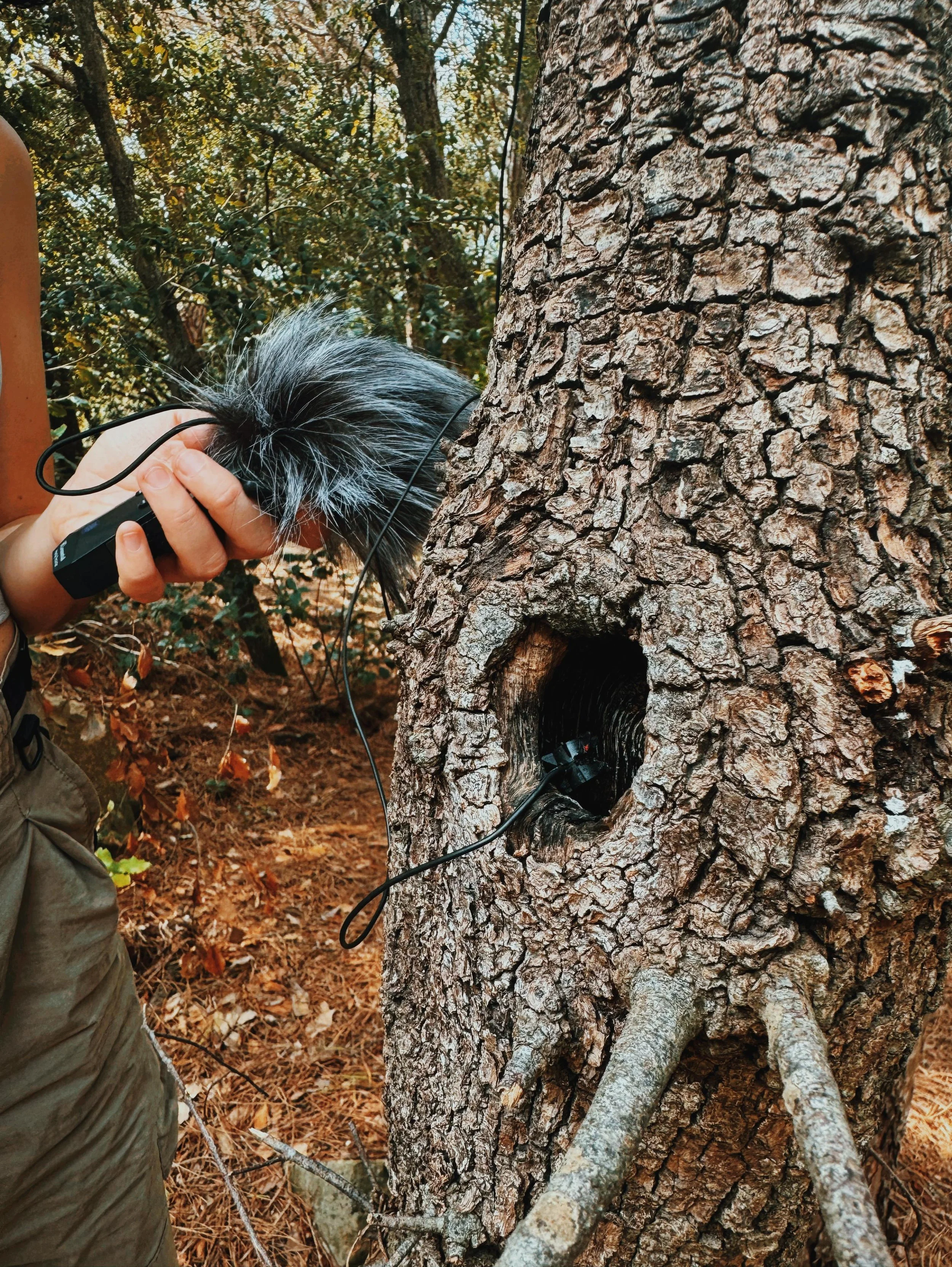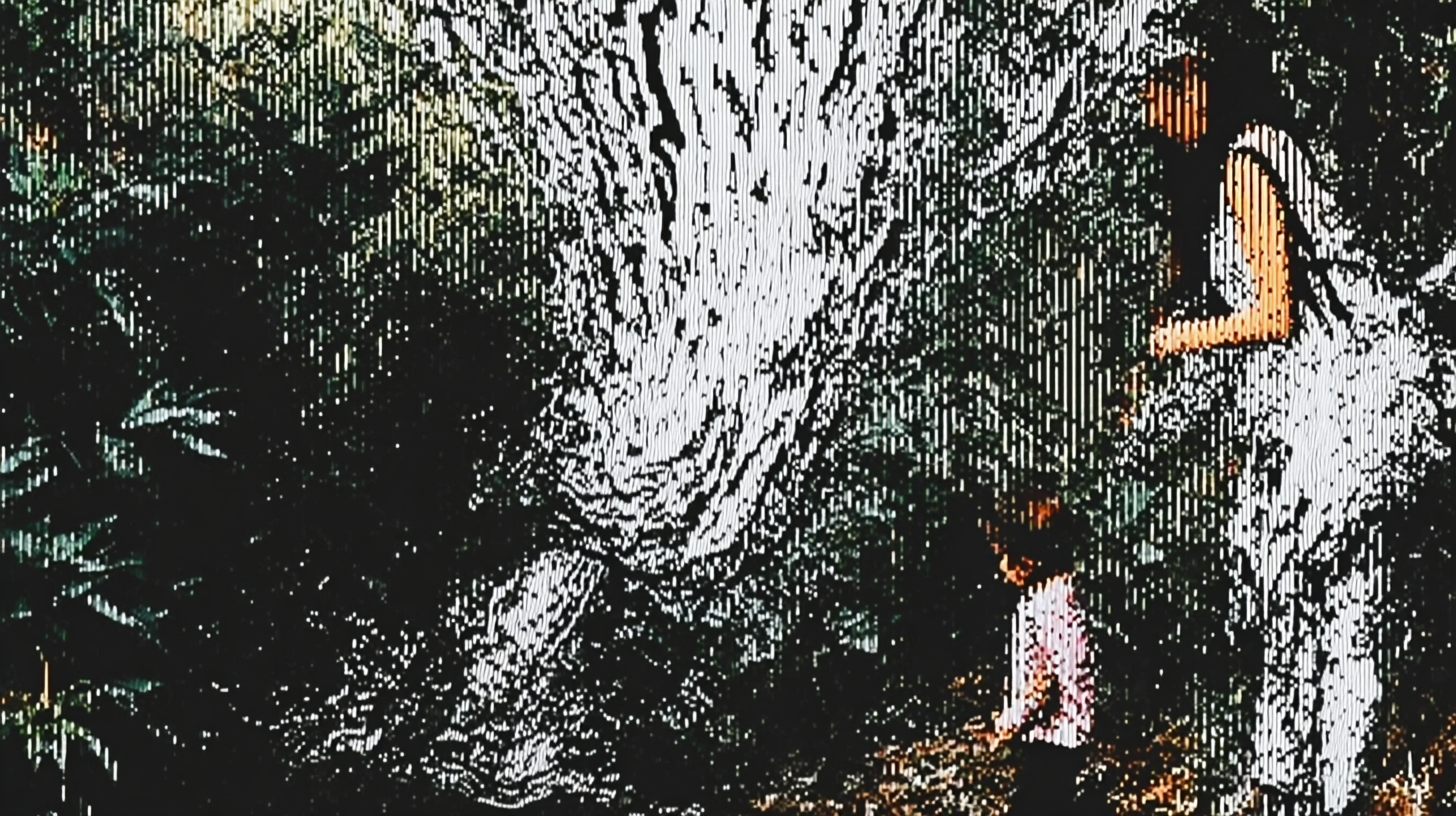
What if the forest could remember you?
Echoes of Cabrils
Sottobosco Artist Residency Showcase
Echoes of Cabrils emerged during my residency at Sottobosco, where I explored how technology might serve as a bridge — rather than a barrier — between the organic and the digital.
The project began with field recordings captured through binaural microphones and contact sensors, tracing the subtle vibrations of soil, stones, and roots. These recordings were then reworked in Ableton Live, stretched, filtered, and layered into evolving sound textures that blurred the boundary between the living and the synthetic. The resulting installation became a site-specific sonic experience, inviting the public to wander through Cabrils’ secret garden with wireless headphones, immersed in the murmurs of the environment itself.
A Residency Rooted in Listening
When I arrived, I hoped to reconnect with nature as a living system — to let the environment slow my thinking, guide my rhythm, and reshape my creative process. Much of my practice begins in listening: translating non-human rhythms into audiovisual languages through biosensing, generative systems, and organic computing. The forest (and its wider ecosystem) became a collaborator — a network of signals, feedback, and chance.
Between Art, Technology, and Ecology
At Sottobosco, technology became an extension of perception — a way to attune rather than control. Working with Espai Sideral’s radio-frequency headphones, I was able to transmit real-time compositions across the garden without cables or latency. Unlike standard Bluetooth systems, these headphones use FM radio transmission, creating a fluid, interference-free sound field that extends across distance and foliage. This allowed participants to move freely through the landscape — each person inhabiting their own intimate acoustic bubble while still sharing a collective listening experience.
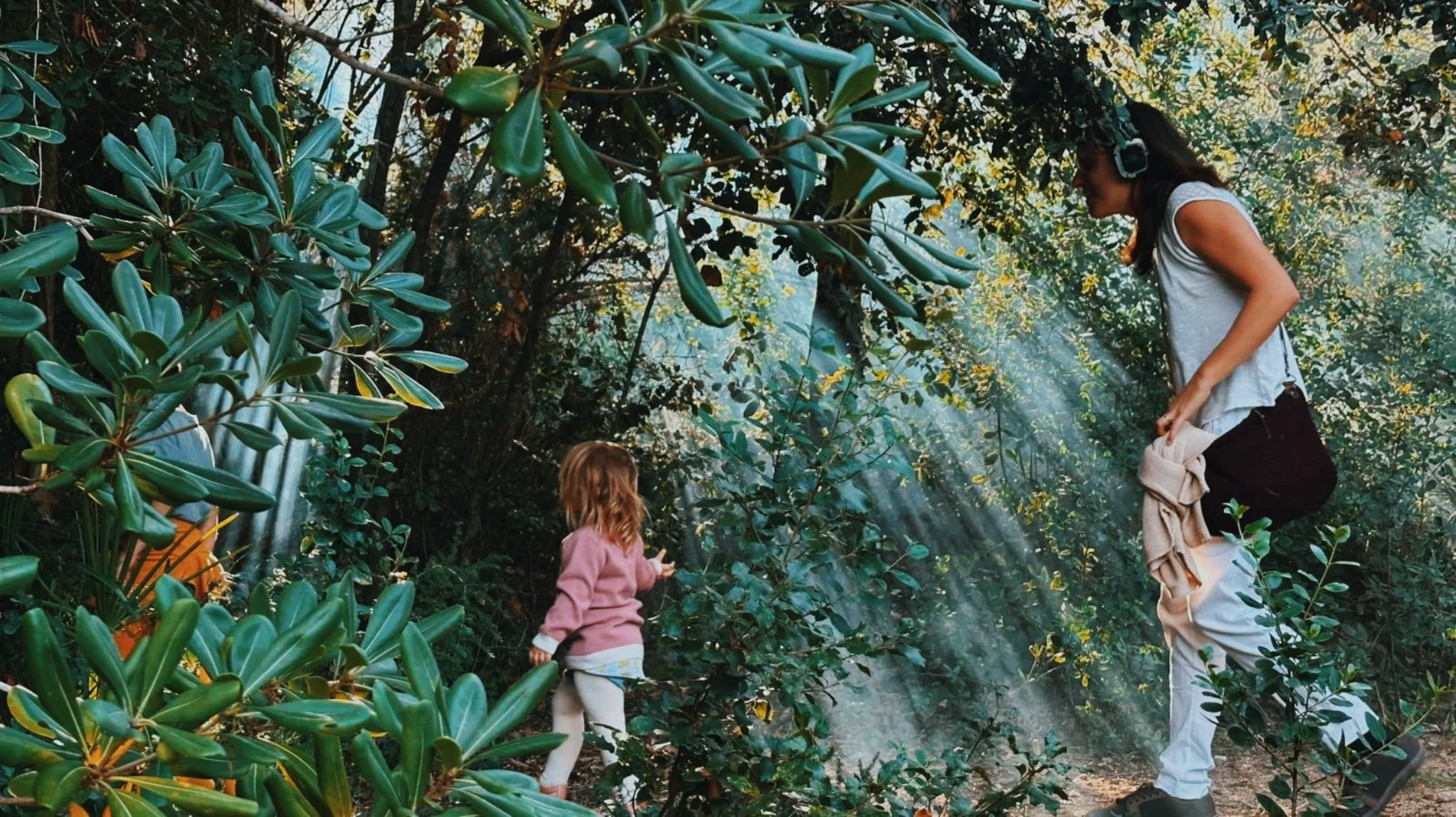
Alongside this, I experimented with contact microphones and motion sensors attached to branches and stones, letting environmental vibrations trigger generative sounds and visuals. Through this setup, nature itself became performer and conductor, while technology played the role of translator — converting organic movement into sonic language.
The outdoor setting reshaped my usual workflow: humidity, shifting light, and unstable power sources forced my systems to adapt. Rather than resist these conditions, I welcomed them as co-creators — embracing a form of responsive instability that blurred the boundaries between composition and coincidence.
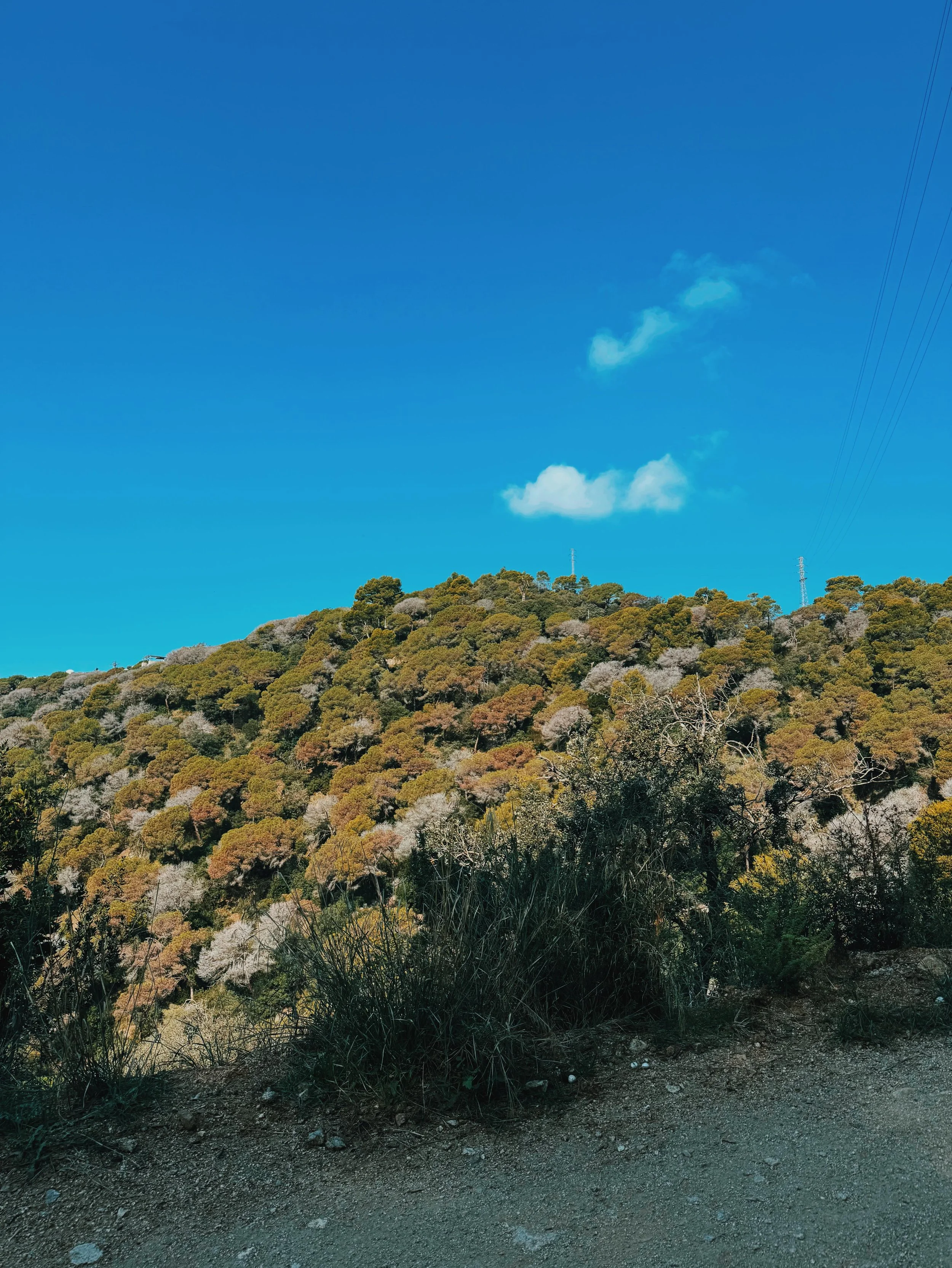
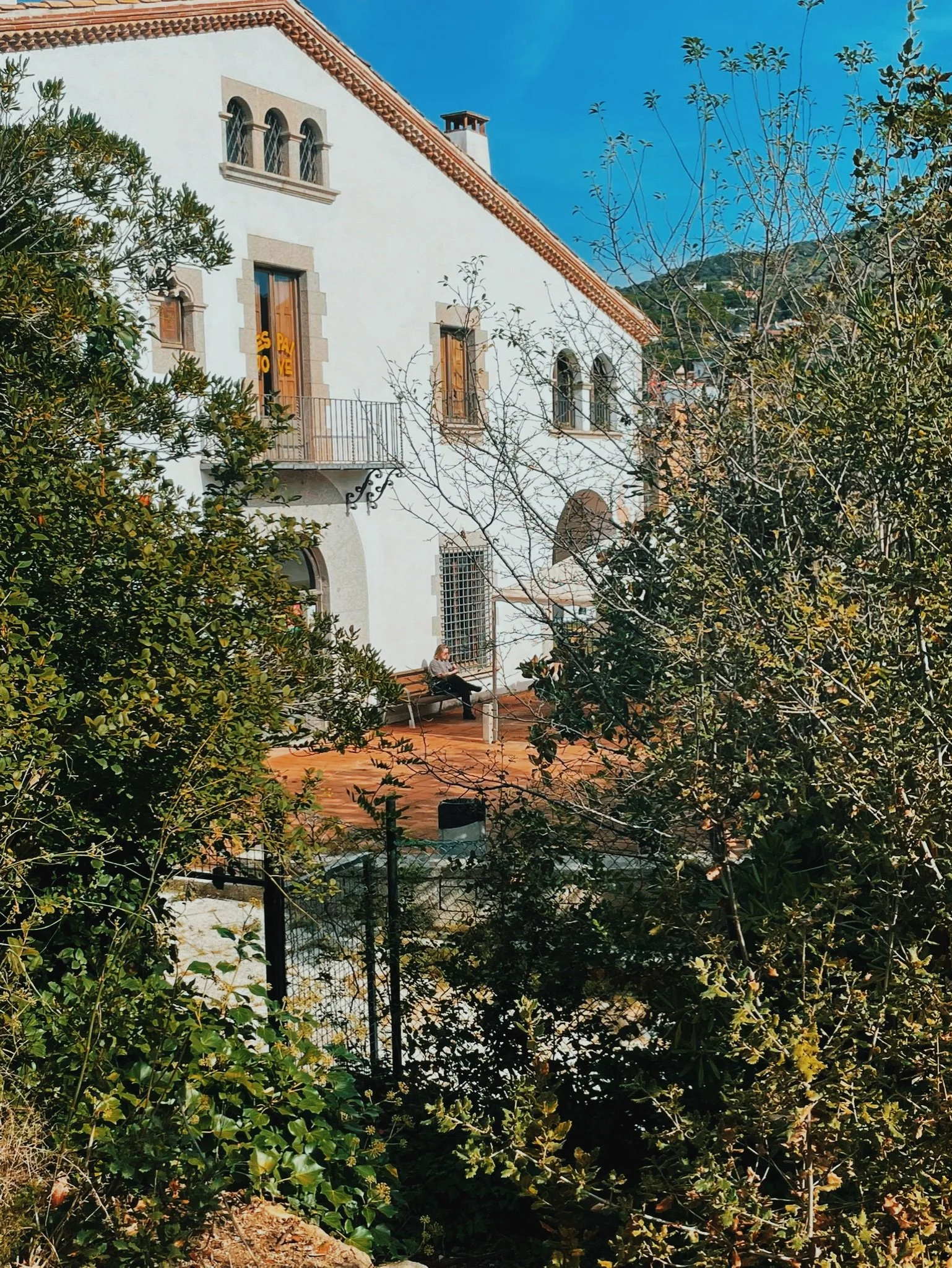
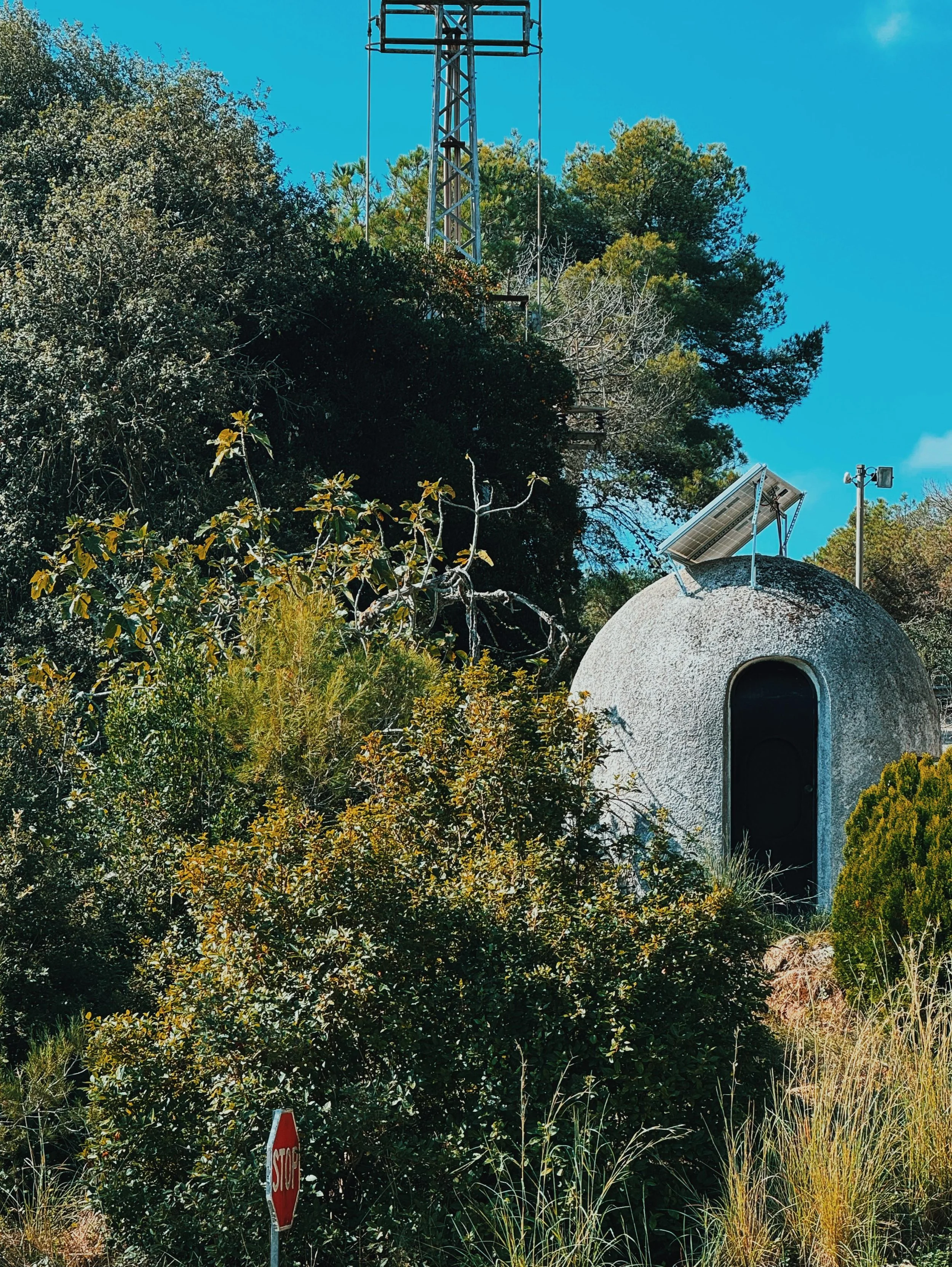
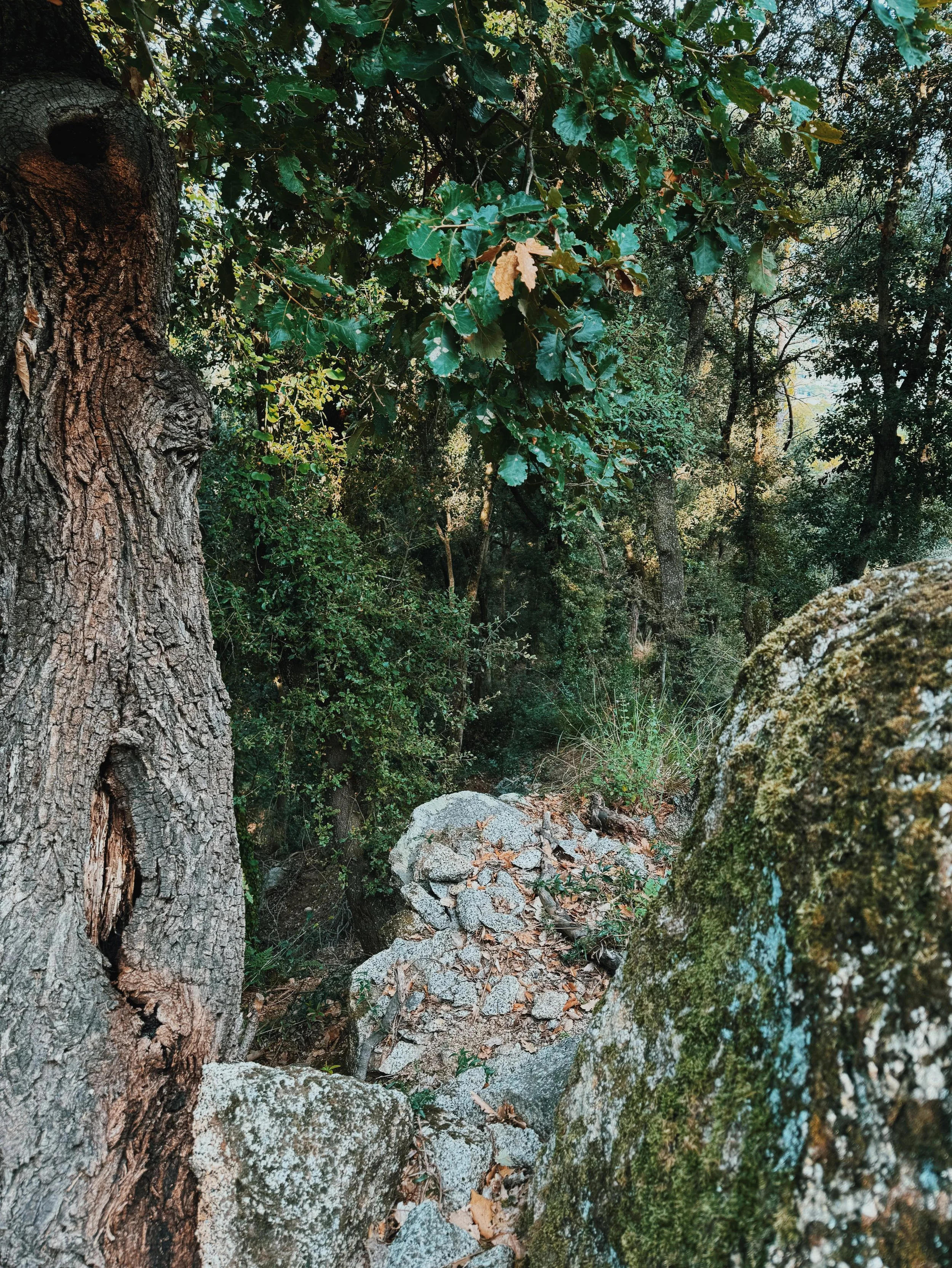
Collective Ground
The residency deepened my sense of community. Shared meals, long conversations, and collective listening sessions with other artists and Cabrils residents grounded the technological experiments in human rhythm and reciprocity. Together we formed a small ecosystem of care and exchange — a reminder that creative processes, like natural ones, thrive through interdependence.
A Living Outcome
The resulting work — a site-responsive sound installation transmitted through Espai Sideral’s radio-frequency system — embodies Sottobosco’s ethos: a dialogue between territory, technology, and sensibility. It reflects both data and emotion, inviting listeners to tune into the hidden vibrations beneath the forest floor and within themselves.
This project reaffirmed my commitment to developing future research and installations that explore living computation, sensorial design, and nature-based AI systems — works that nurture empathy between human and non-human worlds.
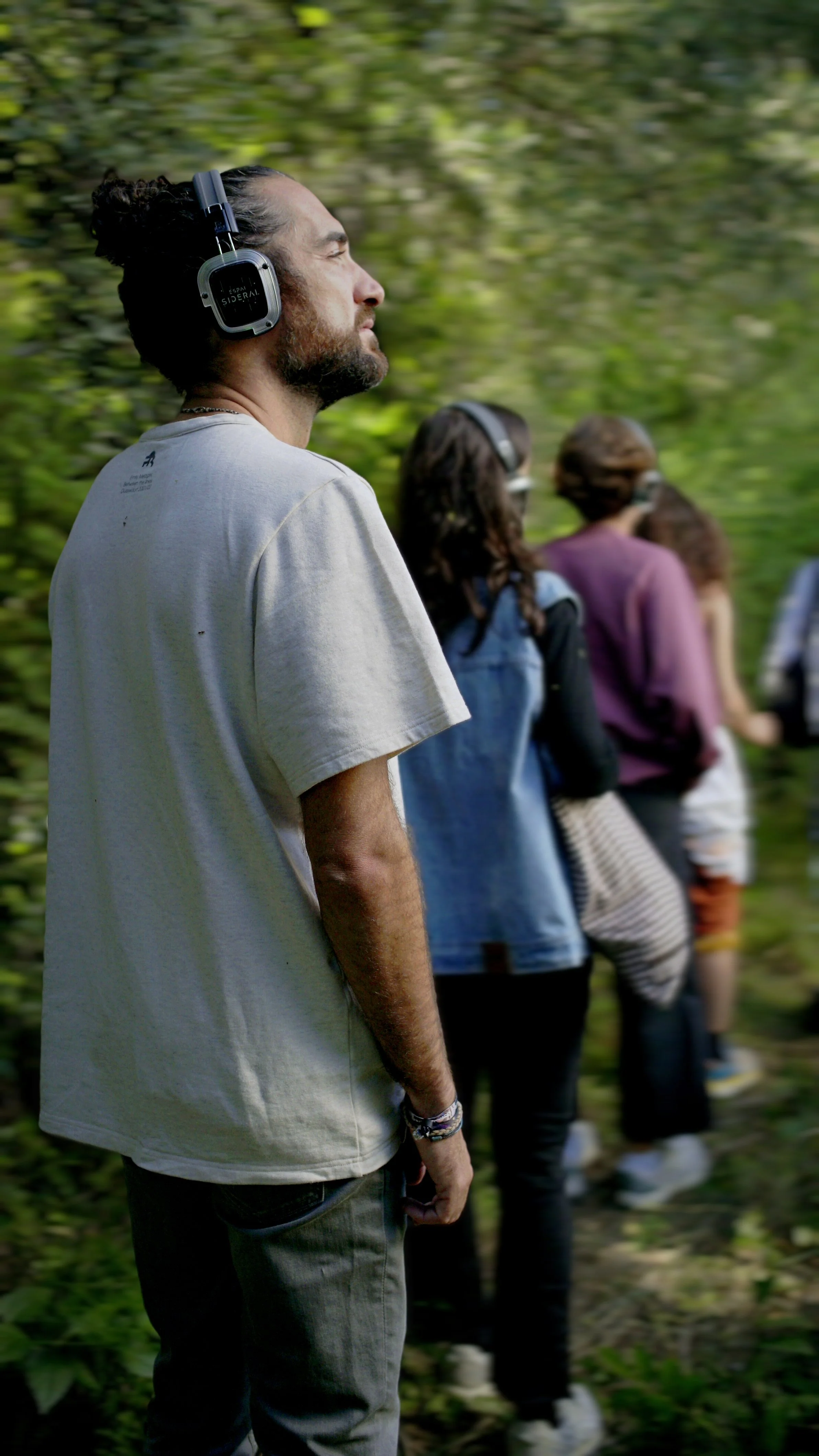


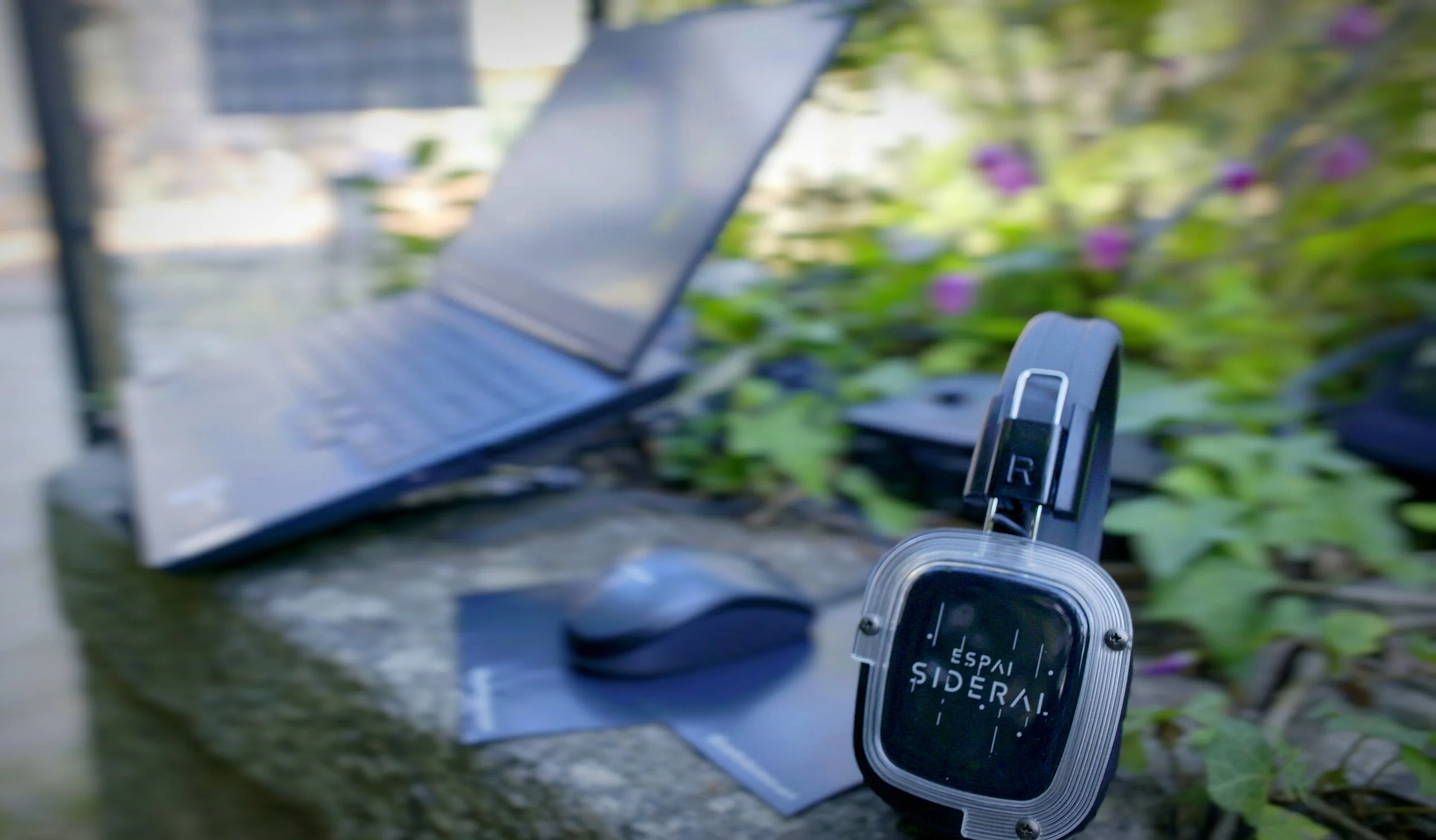



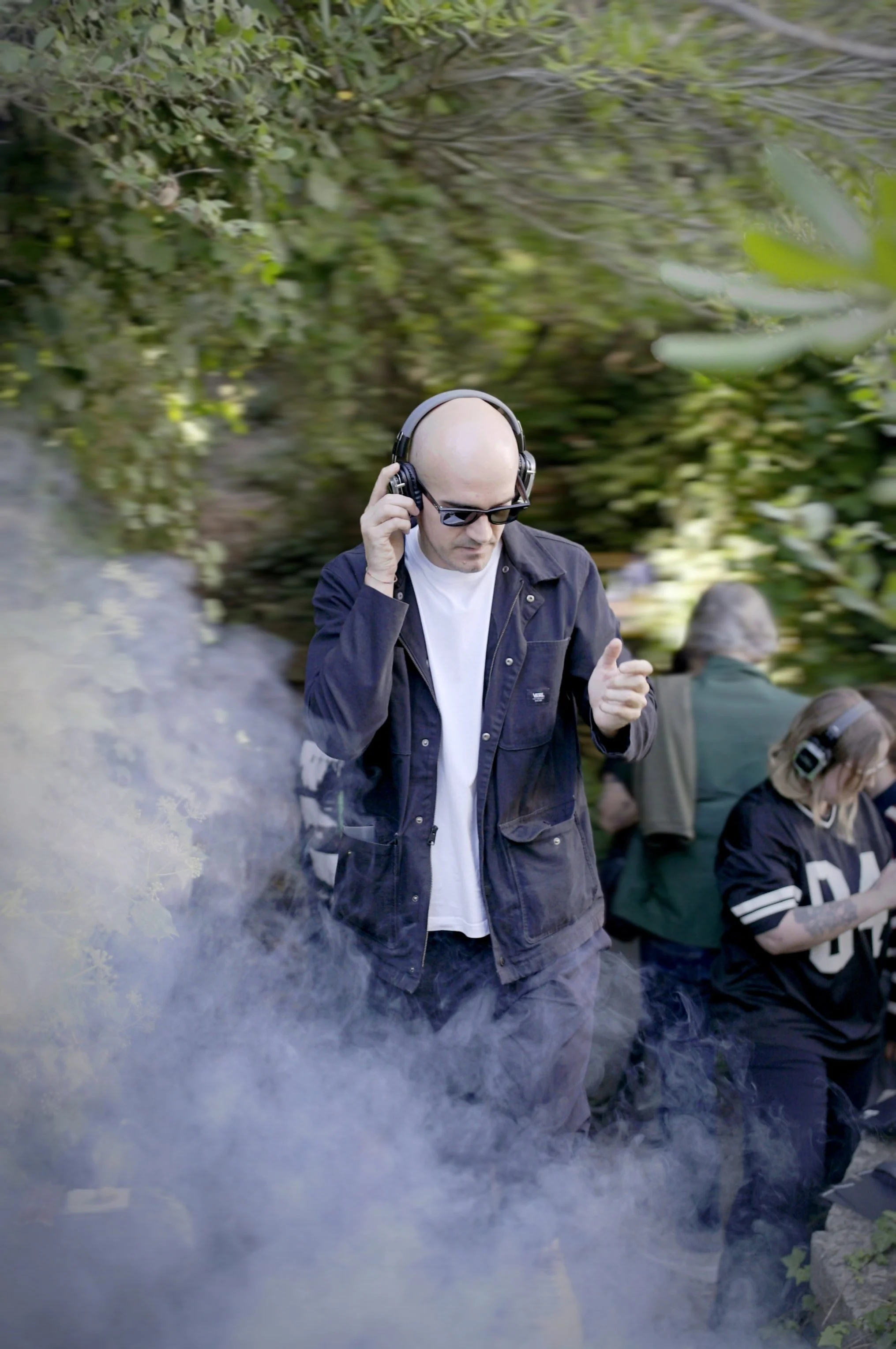


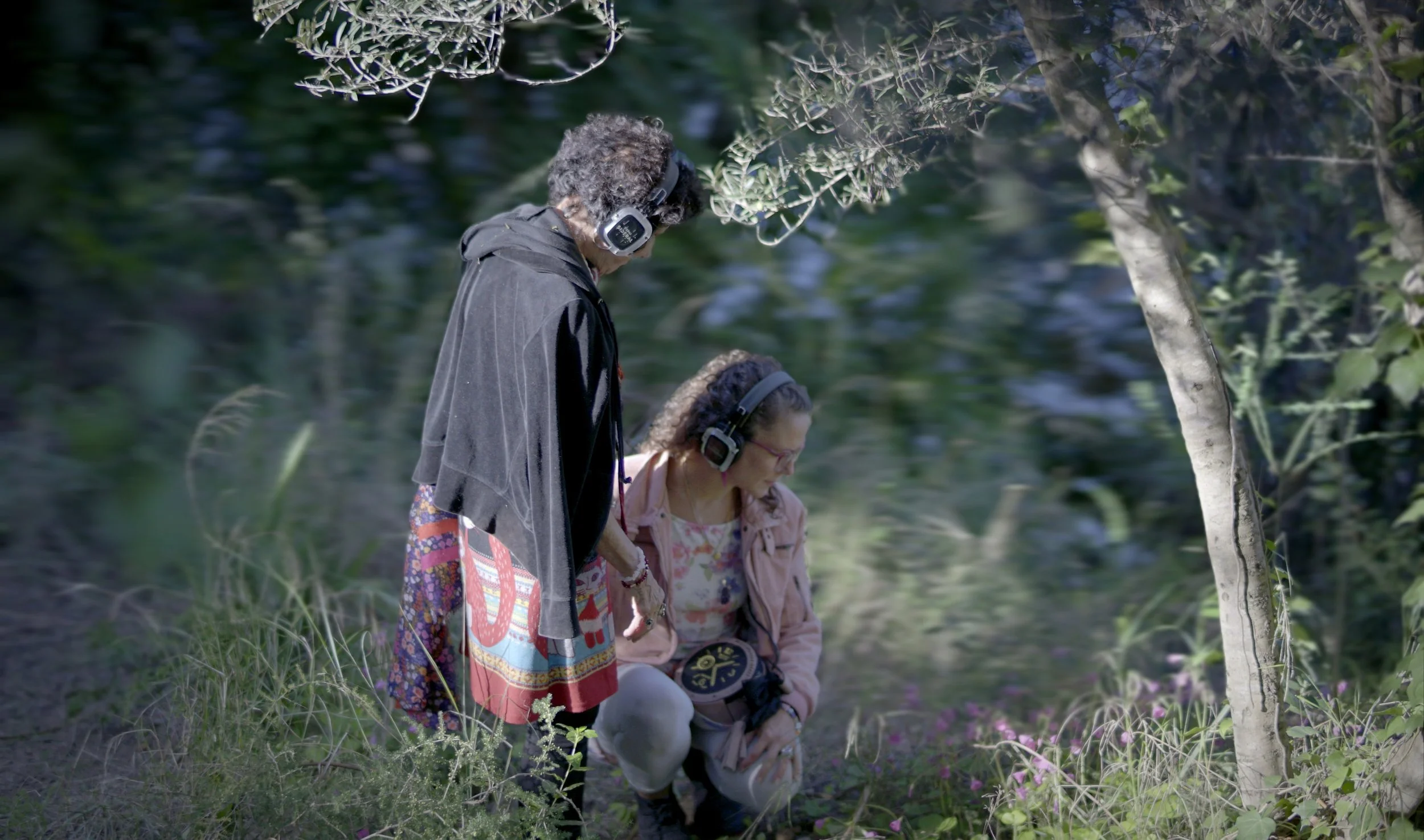
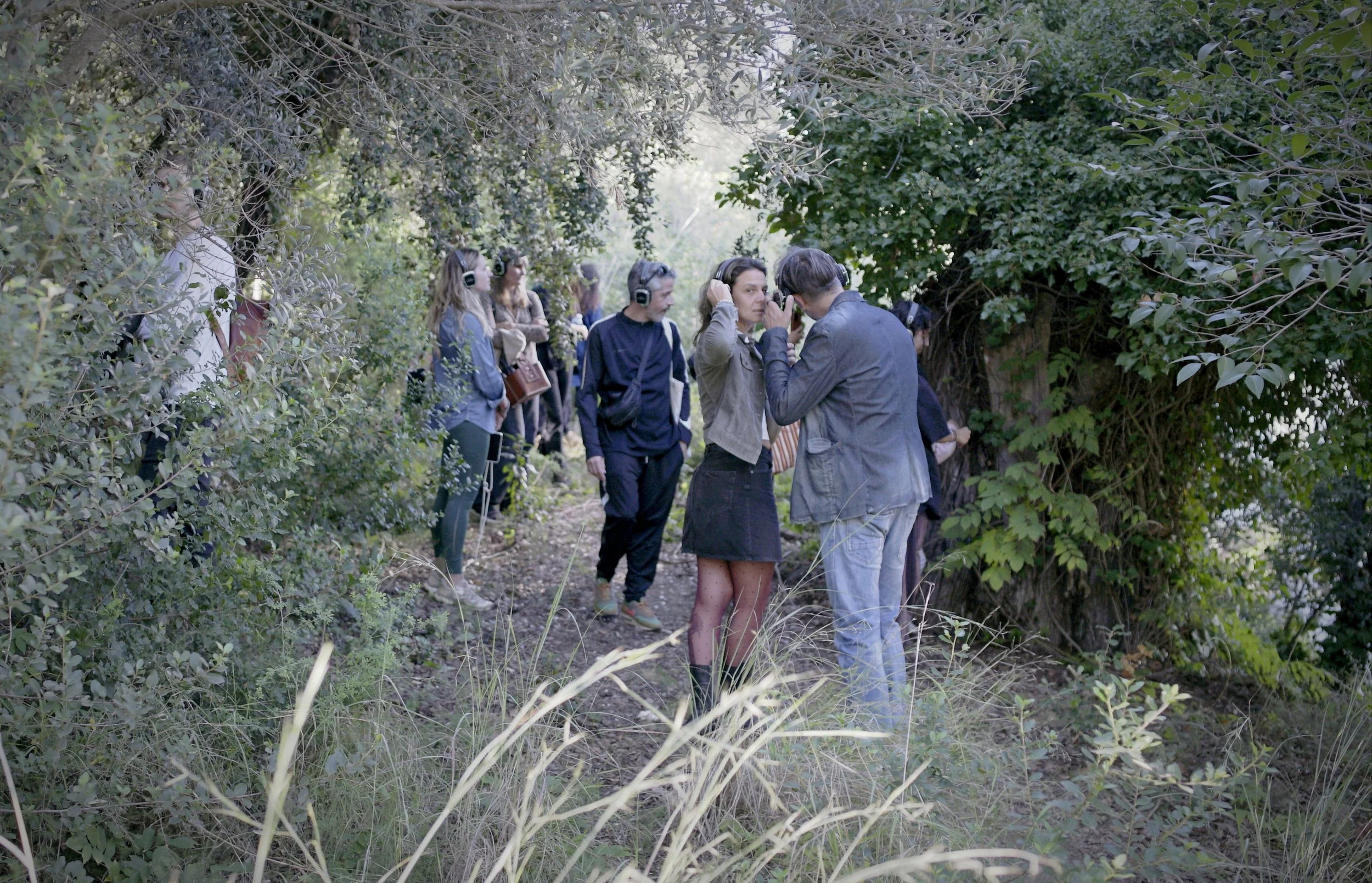
Listen with headphones. Walk with the forest.
🌿 Please listen with headphones — this work is designed for immersive, spatial listening.
You are invited to take it outdoors: walk slowly, breathe, and let the world around you become part of the composition.
🪲 Sound design and composition by Sarabiotic
🪵 Recorded at Sottobosco Artist Residency, Cabrils (2025)
🎧 Radio frequency headphones provided by Espai Sideral
📸 Photography and videos by Patricio Capelo @nada_films_ and Nancy El Azzi @nancyelazzi
